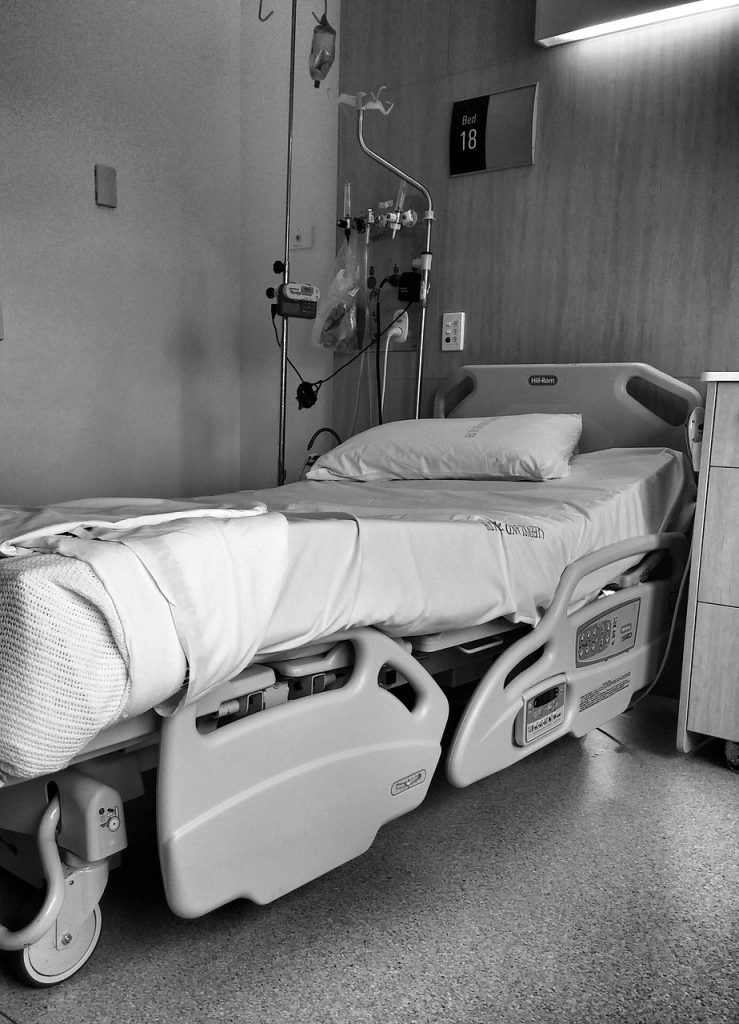All fields are required
Posted in Botulism,Our Blog on May 7, 2024

Young Brazilian woman diagnosed with botulism during work exchange program is hospitalized. Family is attempting to move her home for further treatment.
A young Brazilian woman participating in a work exchange program in Colorado becomes paralyzed and fighting for her life after becoming infected by a rare bacteria, likely from food poisoning, says her family.
Here’s what we know.
The 23-year-old international exchange worker went from seemingly healthy to suffering paralysis and unable to breathe on her own overnight. Two weeks later, she was diagnosed with botulism.
It all started one day in early February. According to her sister, who was also in Colorado on a work exchange program, she began feeling sick and needed to leave work early. The woman took a shower, had dinner, and then went to bed. She messaged her friends about her symptoms of shortness of breath, blurred vision, and dizziness.
By the next day, her condition worsened. She could barely breathe on her own and appeared to have facial paralysis. Her arms and legs were weak as well. The young woman was hospitalized on February 17, and by the time she arrived at the hospital, she was 100% paralyzed.
Two weeks after initial symptoms, test results led to a botulism diagnosis. Her family says that they do not know where the young woman may have gotten the illness. However, they do believe it was likely foodborne.
Botulism is a rare but serious illness that is caused by a toxin. This toxin attacks the body’s nerves and is most known for its paralysis symptoms.
Botulism toxin is most associated with the Clostridium botulinum bacteria. However, Clostridium butyricum and Clostridium baratii can also produce this toxin.
These bacteria can be found in many natural places, however the bacteria rarely makes people sick. These bacteria make spores that act as protective coverings to help it survive under extreme conditions. Even these spores generally cause no illness; even when consumed.
However, under certain conditions, the spore can grow and produce a toxin. It is this toxin that causes the majority of reported illnesses.
Certain favorable conditions promote botulinum toxin formation.
These conditions include:
Improperly canned, preserved, or fermented foods provide these optimal conditions that allow spores to grow and produce botulinum toxin.
Adults can fall ill with botulism; however children are at higher risk. Infants often produce different symptoms than adults.
If the infection is foodborne, symptoms usually begin around 18 to 36 hours after consuming a contaminated food.
Botulism symptoms in adults:
People experiencing botulism may not experience all of these symptoms at the same time.
Botulism symptoms in Infants:
These symptoms all result from muscle paralysis caused by the toxin. If left untreated, it can progress, and symptoms may worsen. Paralysis of the muscles used in breathing and in the arms and legs can cause serious complications.
Seek medication attention immediately if you are someone you know has symptoms of botulism. The condition can worsen rapidly and become life-threatening.
Botulism requires specialized testing to ensure proper diagnosis. Symptoms overlap with other illnesses, such as Guillain-Barrè syndrome, meningitis, myasthenia gravis, stroke, and opioid overdose.
Tests used to diagnose someone with symptoms consistent with botulism include:
Doctors tend to start there. If these tests are not conclusive, the next step is to order laboratory tests that may identify the toxin or bacteria that causes botulism. In some cases, treatment is started before results are returned from the laboratory if the doctor has ruled out other illnesses and suspects a botulism diagnosis.
Botulism is treated with a type of drug called an antitoxin. Unfortunately, this antitoxin does not heal damage the toxin has already done. It will, however, prevent the toxin from causing more damage. Most people will need to remain in the hospital for weeks or even months before they are well enough to return home.
While in the hospital, treatment is provided to help alleviate the symptoms until the body can return to function on its own.
In some cases, the toxin paralyzes the muscles involved in breathing. In these cases, the patient will be put on a ventilator (breathing machine), until they are able to breathe on their own again.
Paralysis usually improves slowly, so close observation is needed until the patient fully recovers.
While botulism is a very serious and life-threatening illness, it isn’t the death sentence it once was.
In the past, about half of those infected with botulism died. Today, fewer than 5 percent of people with botulism die from their illness.
Modern medical care and antitoxin therapy increases the survival rate.
Unfortunately, that 5 percent still exists. In some cases, even with intensive medical and nursing care, some people die from complications. Respiratory failure, infections due to long-term paralysis, and other issues may arise.
Even after recovery, long-term therapy may still be needed, and many survivors may experience fatigue and shortness of breath for years.
As of now, there is still no identified food source for this young woman’s botulism. It is not clear whether others have fallen ill as well. The US Food and Drug Administration (FDA) has not announced an outbreak at this time.
If you’d like to know more about food safety topics in the news, like Young Brazilian Woman Diagnosed with Botulism During Work Exchange Program, check out the Make Food Safe Blog. We regularly update trending topics, foodborne infections in the news, recalls, and more! Stay tuned for quality information to help keep your family safe, while The Lange Law Firm, PLLC strives to Make Food Safe!
By: Heather Van Tassell (contributing writer, non-lawyer)